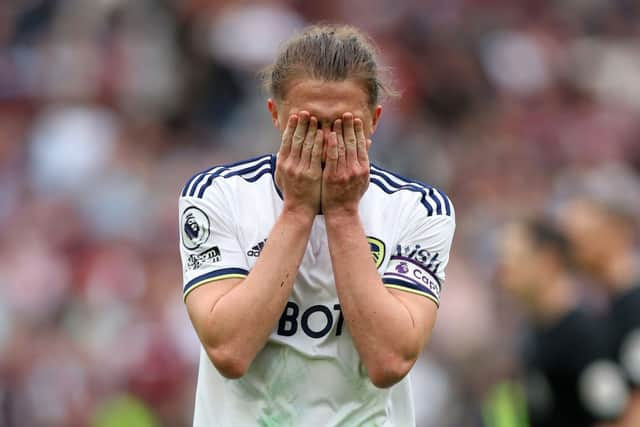Premier League parachute payments 2023: what are they and how much will relegated teams get?
and live on Freeview channel 276
Today is the final day of the Premier League and while the top of the table is secured with Manchester City winning their third Premier League title in three years and fifth in six years, the other end of the spectrum is still up for grabs with Leicester, Leeds and Everton scrambling for safety.
The relegation battle had been exceptionally tight until just a few weeks ago when West Ham won two of their recent fixtures; Bournemouth won their two most recent fixtures and Nottingham Forest secured victory over Arsenal to ensure they stayed up.
Advertisement
Hide AdAdvertisement
Hide AdHowever, with Everton currently on 33 points and both Leicester and Leeds on 31, the final day’s play will be crucial. Leeds’ fate hangs in the balance and even if they were to win, they would still need both the Foxes and Toffees to lose in order for safety to be ensured. Southampton’s relegation was confirmed a few weeks ago, following a season of just six wins, and they will now be reliant on the Premier League’s parachute payment system when next season comes around.
Here is all you need to know about how much the Saints will receive in parachute payments...
What are parachute payments?
Parachute payments are given to clubs who have been relegated from the Premier League. The aim of the payments is still help ensure the clubs can come with the reduced income from not being part of the Premier League - especially because many players remaining at the club will still be under contract with Premier League wages.


In 2016/17 the payment system was changed so that the money would be distributed to relegated clubs over three years rather than four. The relegated clubs will receive 55% of the equal share of broadcast revenue paid to Premier League clubs in the first year after relegation; 45% the following year and 20% in year three.
Advertisement
Hide AdAdvertisement
Hide AdThe payments stopped if the club was promoted to the Premier League again during the three-year period.
What are the new rules?
Earlier this year, there was yet another revision to the payments. Sky News reported that the Premier League offered a ‘£30m-per-year sweetener’ to the rest of EFL’s professional pyramid in order to secure a deal over future funding.
Strict cost-controlling would be introduced in order to avoid lower league clubs ending up at risk. A reform of the current system would be entailed along with new distribution models; merit payments would be awarded to the clubs based on their performance in the league.
A new independent regulator of football is due to be introduced although it is said it is ‘unclear’ whether the EFL board will support the Premier League’s latest proposal. The deal would come, however, in addition to the current solidarity payments which see the League pay around £110m a year to Championship and EFL clubs.
Advertisement
Hide AdAdvertisement
Hide AdDespite the new proposals, the relegated teams from this season are still expected to receive the 55%; 45% and 20% payments.
What are the final fixtures in the Premier League 2022/23?
All fixtures will kick-off at 4.30pm in order to keep the last day’s play competitive until the final minutes. Here are the upcoming matches:
- Aston Villa vs Brighton
- Everton vs Bournemouth
- Leeds United vs Tottenham
- Brentford vs Manchester City
- Manchester United vs Fulham
- Chelsea vs Newcastle
- Leicester City vs West Ham
- Arsenal vs Wolves
- Southampton vs Liverpool
- Crystal Palace vs Nottingham Forest
Comment Guidelines
National World encourages reader discussion on our stories. User feedback, insights and back-and-forth exchanges add a rich layer of context to reporting. Please review our Community Guidelines before commenting.
